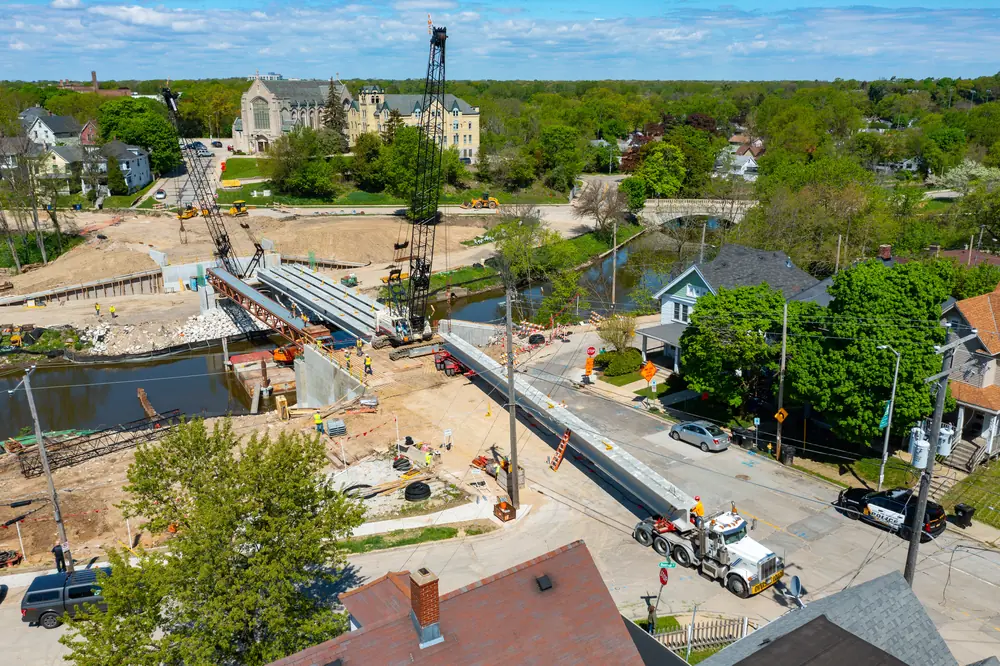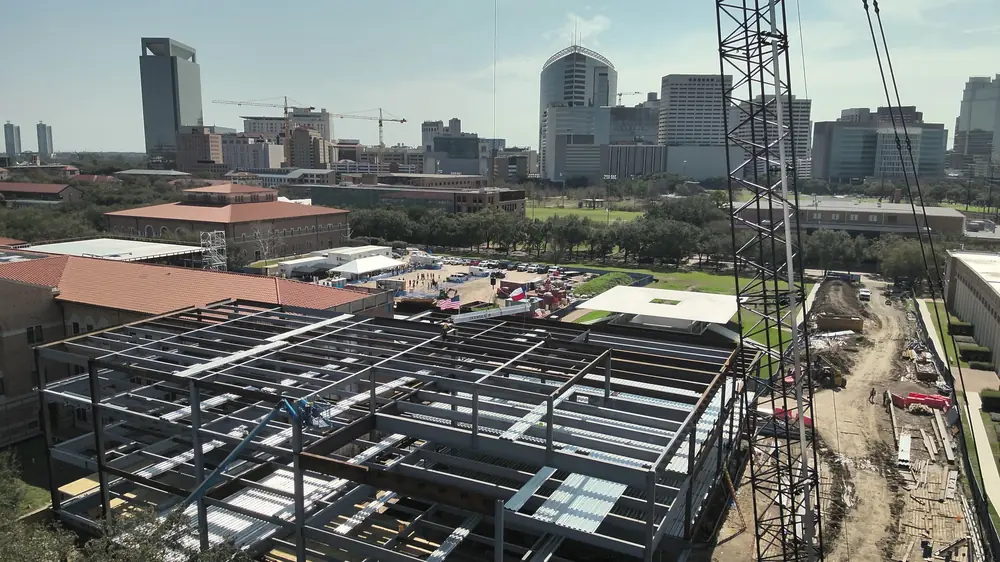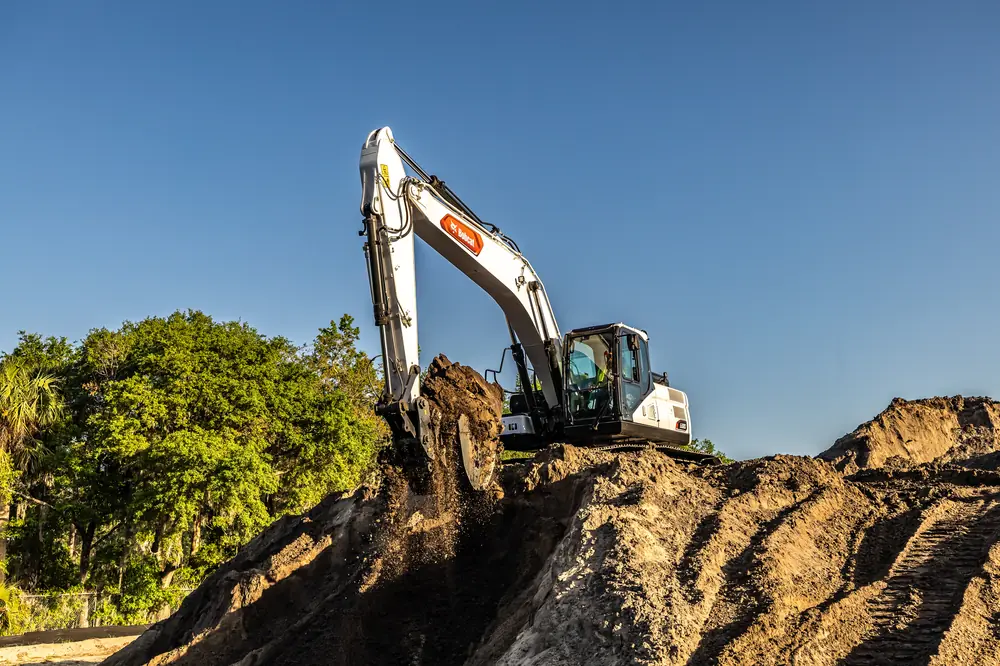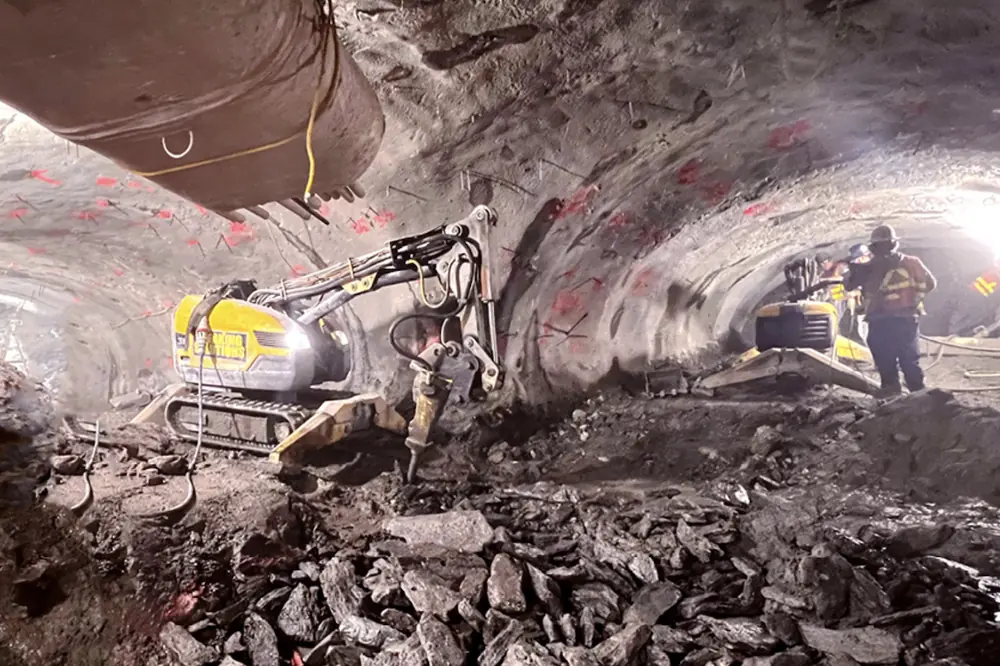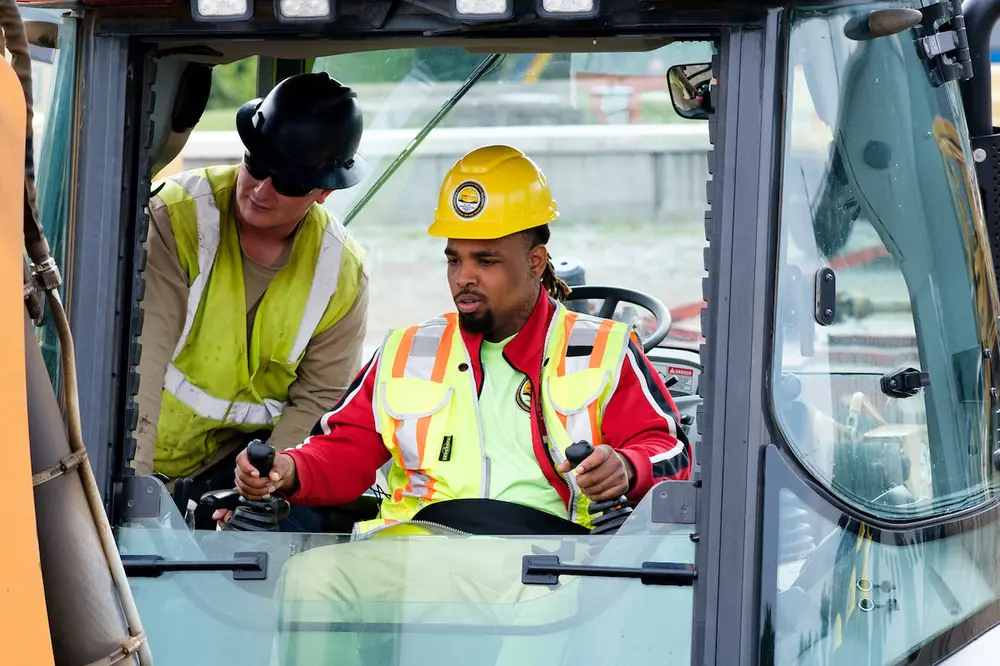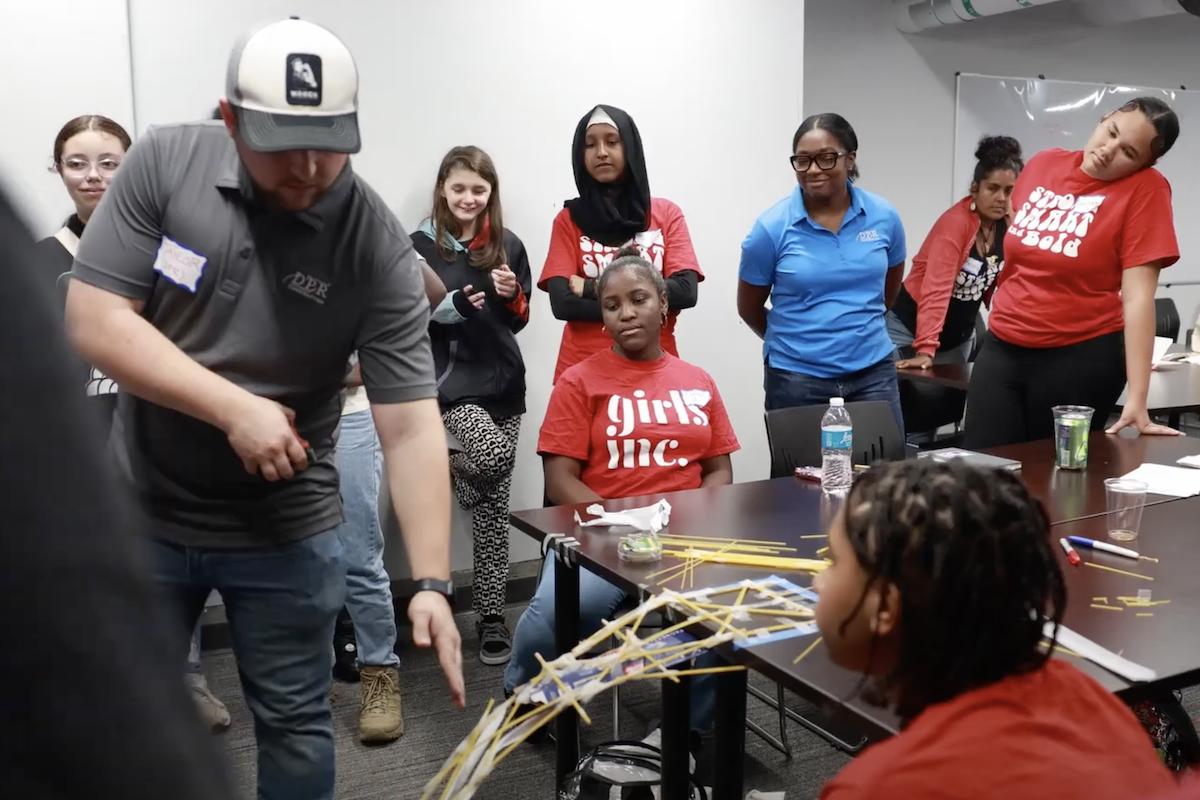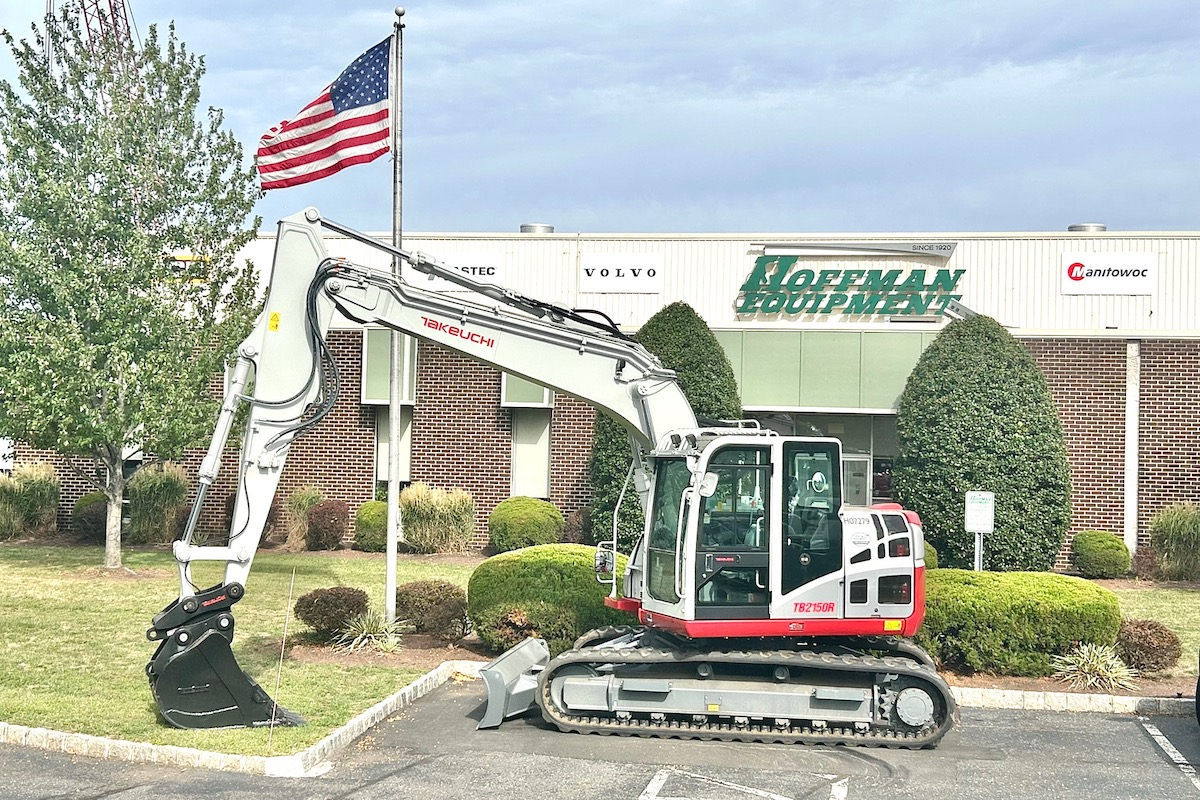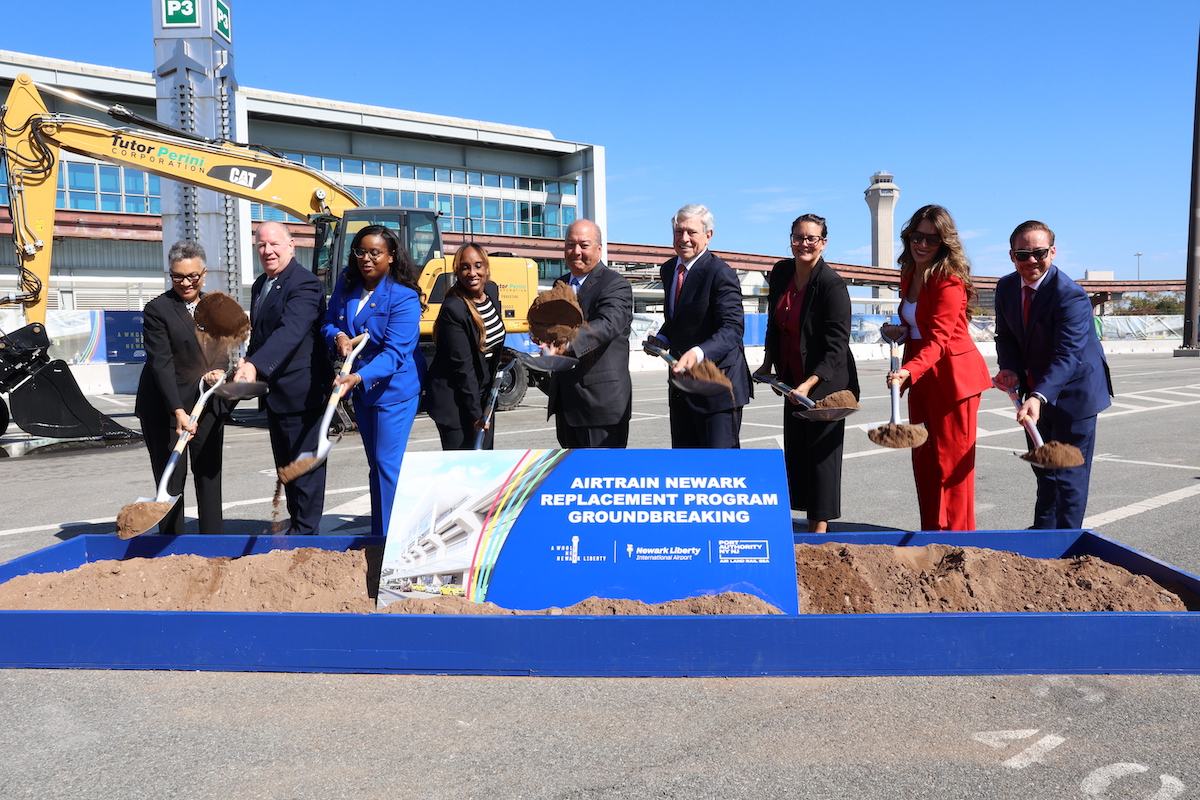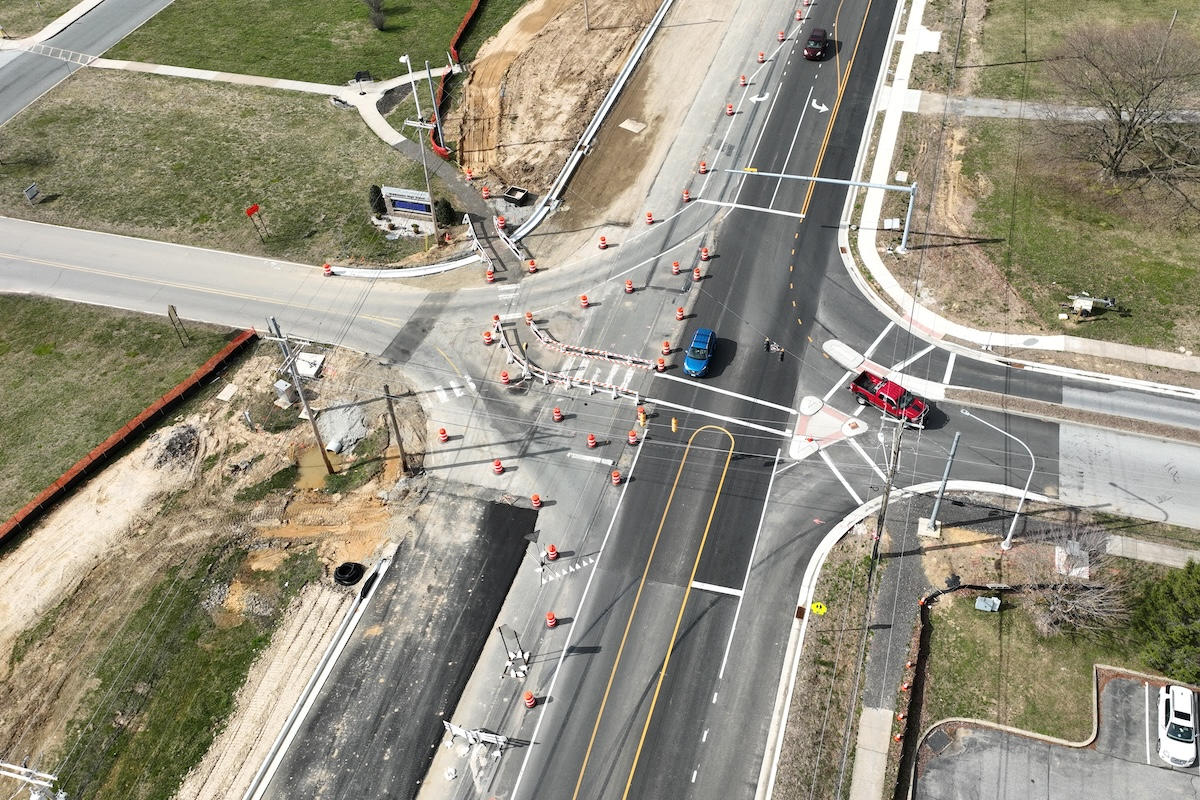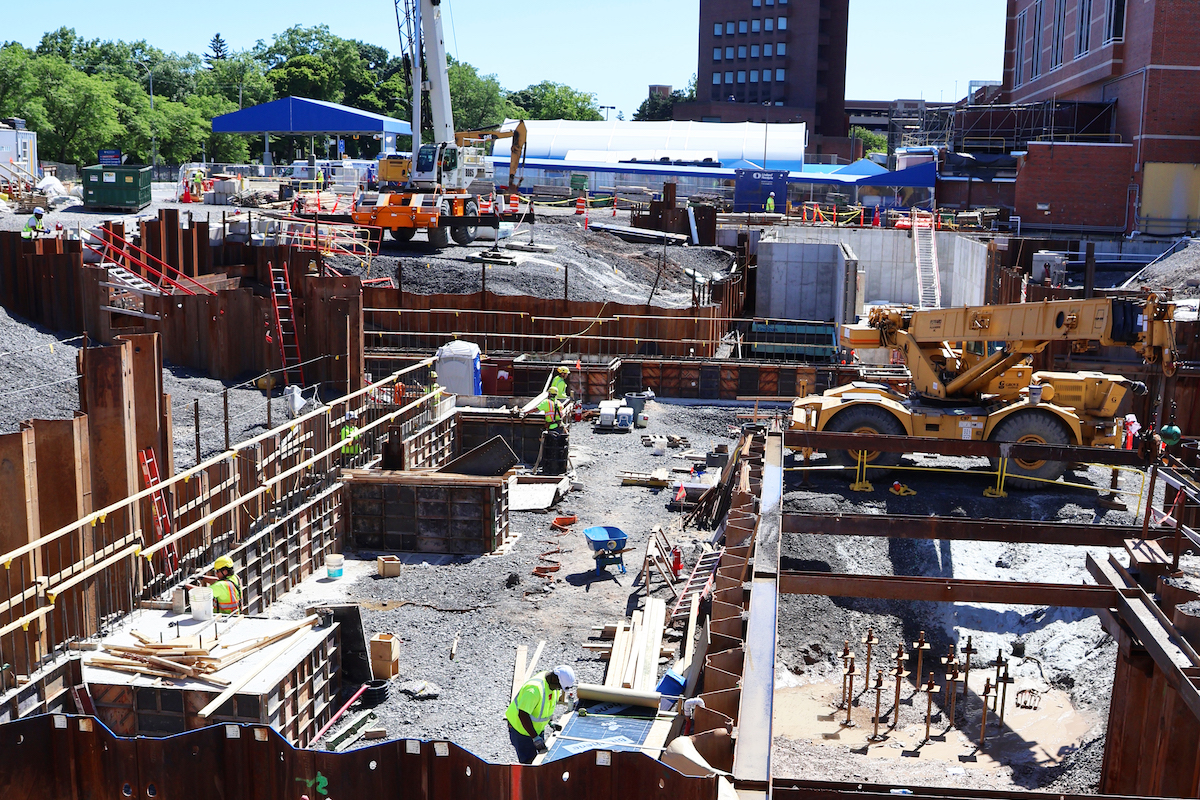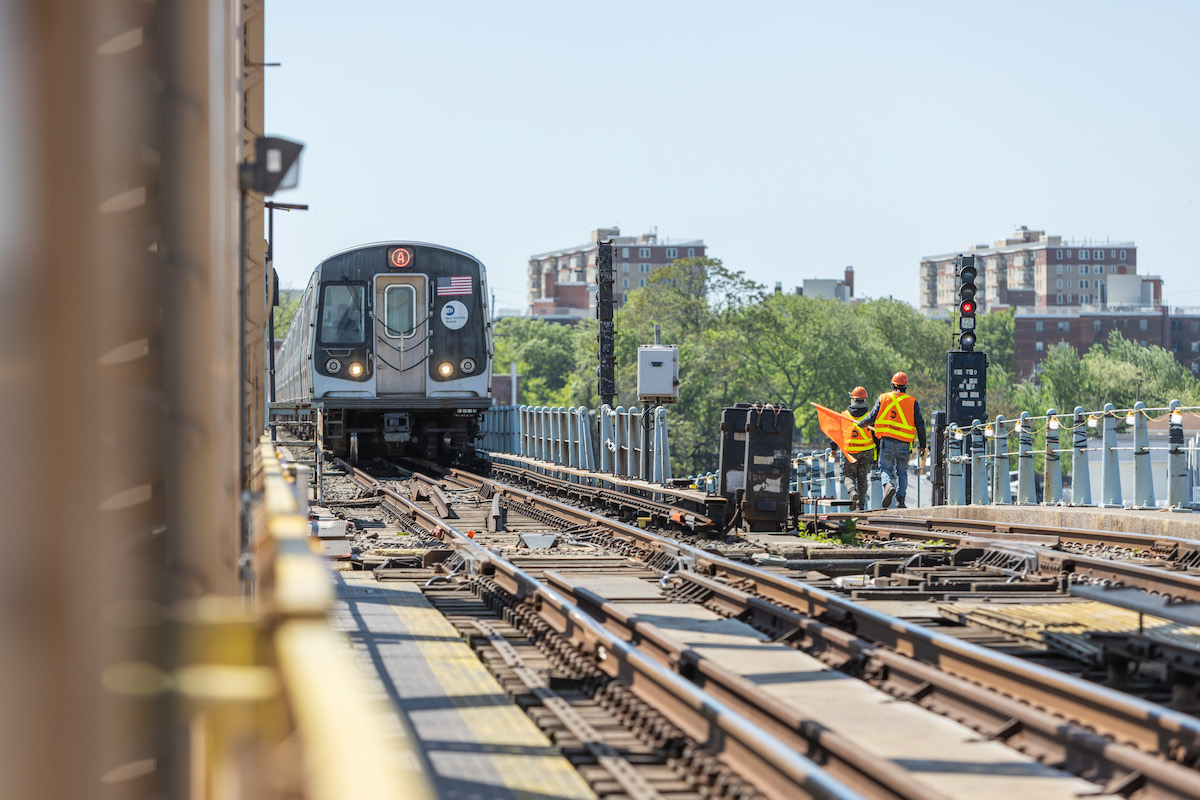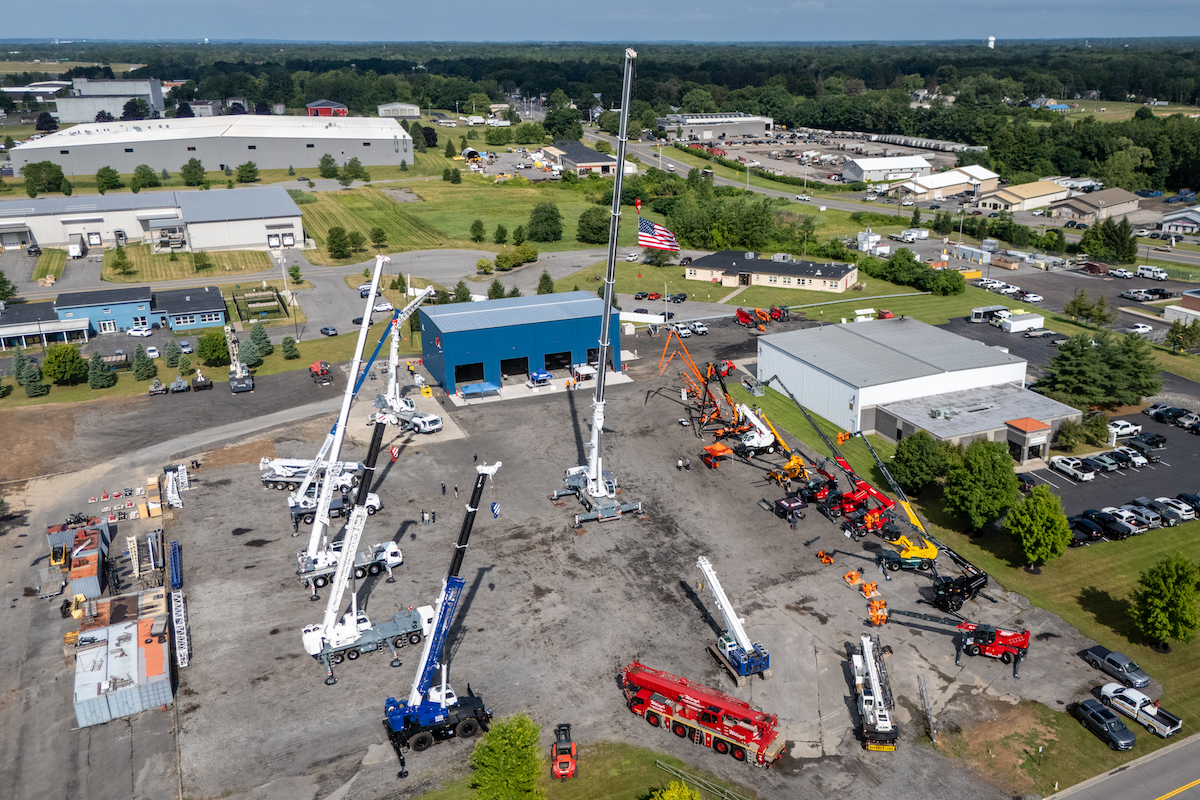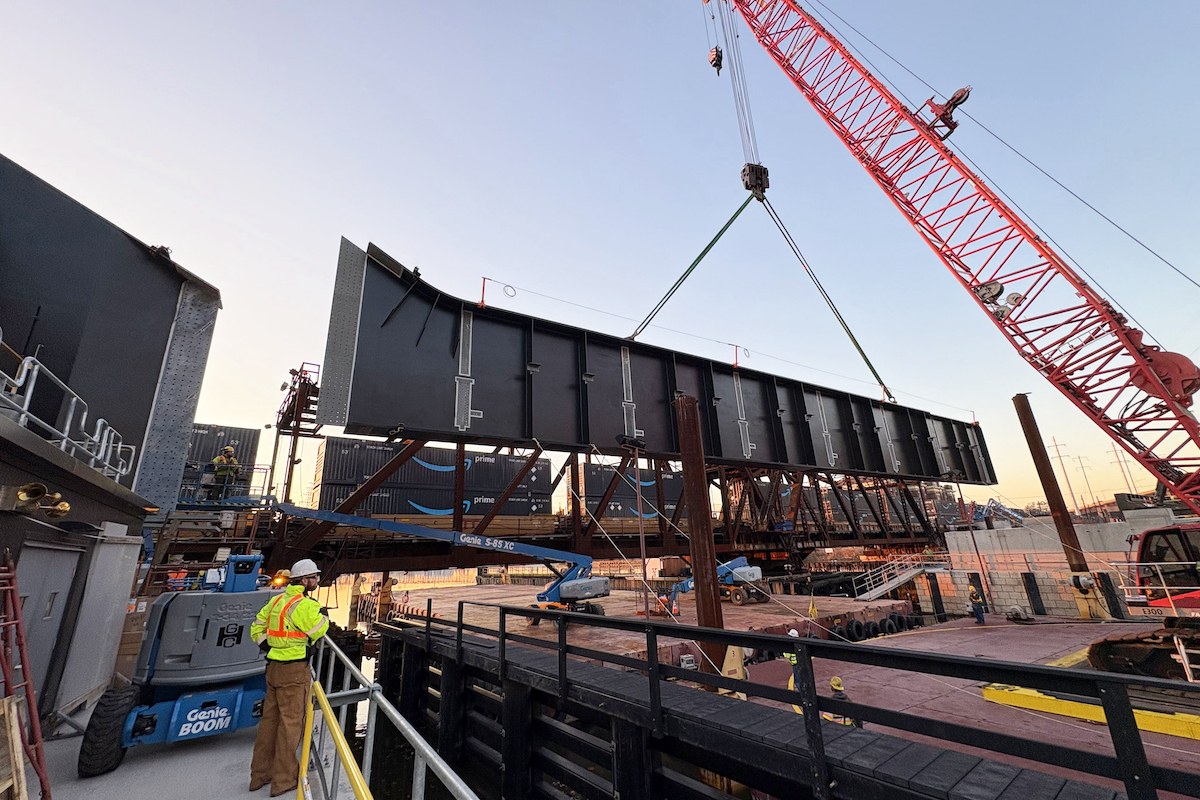But as utilization goes up, the cost of downtime also goes up – from disrupting project schedules to reducing profitability. The best way to avoid the negative impacts of equipment downtime is to adopt a preventive maintenance program that contributes to healthier, more productive machines.
Although the benefits of preventive maintenance apply to all types of equipment, it is especially true for equipment like mobile elevating work platforms (MEWPs). This is because these machines are designed to put people up in the air – even if it’s just a few feet off the ground – to safely complete work at height.
For example, low-level access MEWPs are increasingly used in finish work applications as many construction sites do not allow drivable lifts into certain areas once a building’s floors are laid, the trim is up, and the doors are installed. Also, these types of MEWPs are becoming more widely utilized as newer, stricter regulations on ladder and scaffolding usage are adopted in facilities’ maintenance applications.
No matter what tasks low-level access MEWPs are being used in, regular attention to the condition, and functionality, of these machines can improve operator and worker safety. Preventive maintenance can also prevent damage to the machine and its surroundings, as well as increase equipment uptime.

| Your local Trimble Construction Division dealer |
|---|
| SITECH Allegheny |
| SITECH Northeast |
Low-level access MEWPs are incredibly simple machines to own and operate, requiring less maintenance than other types of MEWPs. Following these five preventive maintenance tips will make sure that a low-level access MEWP is running efficiently – and improving a job site’s productivity.
During the walkaround, complete all of the machine’s pre-start inspection tasks, including checking for any visible leaks (oil, fuel, or battery fluid) or foreign objects. Always use a piece of cardboard or paper to search for leaks. Operators should wear gloves to protect their hands.
Keep an eye out for dents, cracks, or other damage to the machine. Operators should report anything they find to the proper maintenance personnel, as these can be telltale signs that the machine may need to be repaired or that components may need to be replaced.
Check to make sure all of the machine’s decals and placards are clean and readable. Replace any that are missing or are not legible.
On powered units, make sure the battery cables are securely connected and look for any damage or corrosion. Report any visible issues to the proper maintenance personnel. If the batteries appear to be in good condition, check if the batteries are charged, and if they need to be plugged in, only charge the batteries in a well-ventilated area. Also, check the batteries’ fluid levels. If the levels are low, first fully charge the battery and add distilled water to reach the appropriate level.

| Your local Trimble Construction Division dealer |
|---|
| SITECH Allegheny |
| SITECH Northeast |
It is also necessary to check that the hydraulic system’s fluid levels are at the full mark. Add hydraulic oil, if needed. And ensure that all of the hydraulic connections are tight, undamaged and not leaking. Report to the proper maintenance personnel if repairs to these connections are needed.
Inspect the wheel and castors on low-level access MEWPs for any wear, distortion, or damage. These components must be in good working condition at all times as they are crucial to the machine’s stability. Also, make sure the machine’s bearings are properly adjusted. Bearings that are too tight can make the machine difficult to maneuver.
Finally, verify the machine’s platform gate closes properly and is not bent or damaged. Also, inspect the lanyard attachment points for damage or significant wear. Report any issues discovered to the proper maintenance personnel.
First, set up the machine according to the manufacturer’s instructions for properly positioning and leveling the machine. Check to make sure the MEWP’s castor wheels lock when set and fully engage to keep the machine from rolling and other movements.
On non-powered units, get in the platform and check to make sure the operating handle works correctly. Test it per the manufacturer’s recommended guidelines. For example, on JLG EcoLifts, to test the “fly wheel” operating handle, operators need to hold the handle firmly and pull it towards their bodies. When they release it, the knob should spring back to lock the wheel.

| Your local Trimble Construction Division dealer |
|---|
| SITECH Allegheny |
| SITECH Northeast |
While the operator is still in the platform, raise and lower the mast 2 to 3 feet several times to check for smooth elevation and lowering of the platform. Also, check the rear wheel auto-locking brake mechanism's operation – ensure the pins fully engage the rear wheel brake disks when the platform is elevated and release when the platform is fully lowered.
On powered units, power up the machine. Test to make sure that the emergency stop button at the ground controls shuts off power when pressed. From the ground controls, raise and lower the mast 2 to 3 feet several times to check for the platform's smooth elevation and descent.
If the machine is running properly, operators should enter the platform and operate the machine from the platform controls – ensuring that all platform movement stops immediately when the enable, up or down buttons are released. Also, make sure the emergency stop switch stops all platform movement when pressed. Finally, check the rear wheel auto-locking brake mechanism's operation and verify the proper operation of the Emergency Lowering Valve.
It is also essential for trained maintenance personnel to perform frequent inspections on the machine every three months or 150 hours – whichever comes first. These inspections involve checking the condition of the machine’s structure and assemblies – including the mast sections, floor, guard rails, welds, fasteners, pins, shields, and covers.
Annual inspections (no later than 13 months from the prior inspection dates) by qualified maintenance personnel are important. At this time, the hydraulic oil must be replaced. Also, check for any contamination in the hydraulic system.

| Your local Trimble Construction Division dealer |
|---|
| SITECH Allegheny |
| SITECH Northeast |
Contamination can enter the system through various means, like using inadequate hydraulic oil or allowing moisture, grease, filing, sealing components, sand, etc. in while performing maintenance. Also, contamination can occur if the operator permits the pump to cavitate due to insufficient system warm-up or does not report leaks in the pump supply. If there is evidence of contamination – like metal or rubber particles – found in the system, it is essential to drain and flush the entire system.
Preventive maintenance tasks will vary based on the machine, so operators and maintenance personnel should always refer to the equipment manufacturer’s recommended guidelines, found in the machine’s operation and safety manuals, for specific inspection, maintenance, and service protocols.
Plugging in your machine overnight will ensure the machine’s batteries are fully charged before work the next day begins. But when it does not happen, operators may end up relying on opportunity charging – only recharging the machine after it has discharged completely, and then only enough to move it for the immediate job at hand – to get through the workday. This can cause substantial efficiency problems in terms of battery life and maintenance, as well as productivity. One of the simplest ways to keep batteries performing for an extended period of time is to keep their state-of-charge (SoC) over 80 percent.
Another benefit to keeping the batteries fully charged is to avoid freezing when temperatures get low enough. Because these types of MEWPs can be used in frozen environments – such as arctic climates or cold storage facilities, a battery with a 0 percent charge will freeze at 0 degrees Celsius. When it’s cold, make sure the batteries stay charged, and always plug in your MEWP when it’s not in use.
For example, operators should reduce the amount of machine repositioning they do throughout a work shift. This means eliminating as much of the extra up and down as possible. To do this, operators should utilize the machine’s tool trays to bring the materials and tools needed to complete the work up to height with them.

| Your local Trimble Construction Division dealer |
|---|
| SITECH Allegheny |
| SITECH Northeast |
Also, the machine should always be stored indoors when it is not in use. This will prevent damage, as well as keep dirt and foreign contaminants out of the machine’s vital components between work shifts.
And finally, keeping the machine clean is the most important single item in preserving the long service life of a low-level access MEWP. Operators and machine personnel should work together to clear any obstructed passages, openings or fittings to prevent blockages, as well as to remove any foreign matter. When washing down the machine, it is important to use only approved, non-flammable cleaning solvents.
As low-level access MEWPs continue to be used more and more frequently in finish work-related applications – like putting in fire alarms and sprinklers, or maintenance-related applications like painting and changing light bulbs – don’t skip out on recommended preventive maintenance tasks. Keeping up with the proper inspections and service intervals will ensure these important machines stay in peak operating conditions, resulting in higher productivity and safe use.











